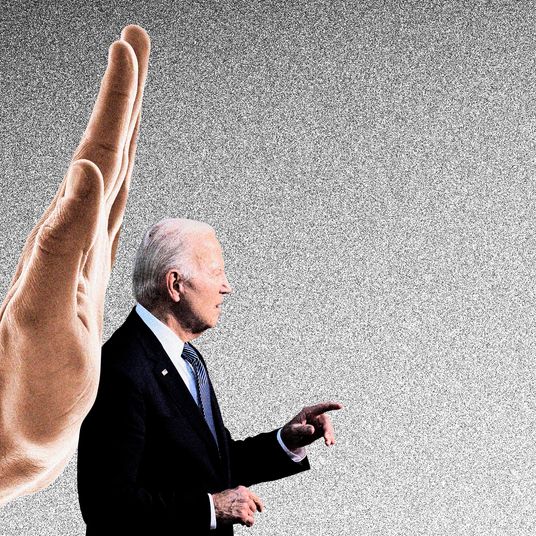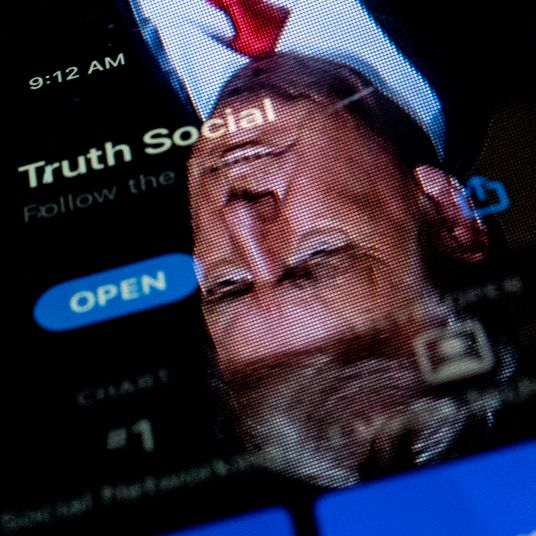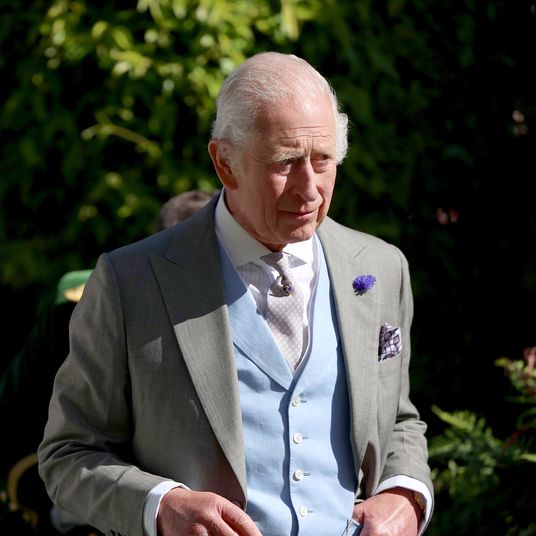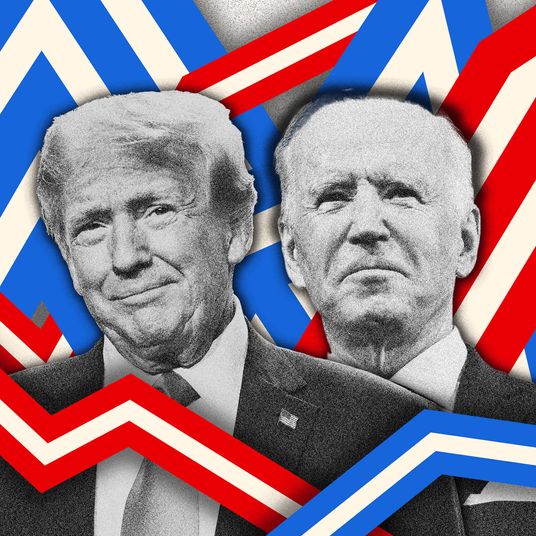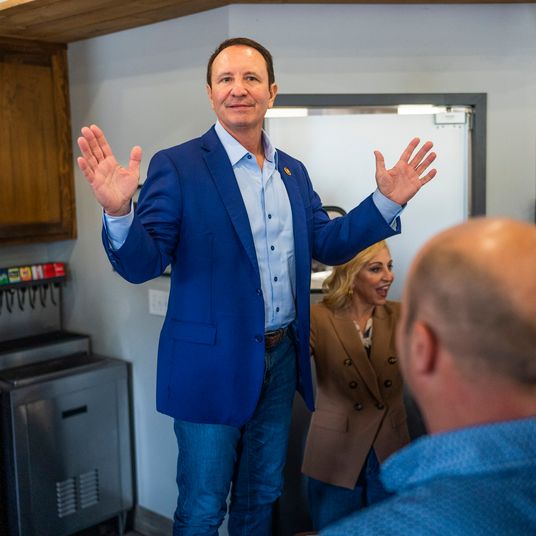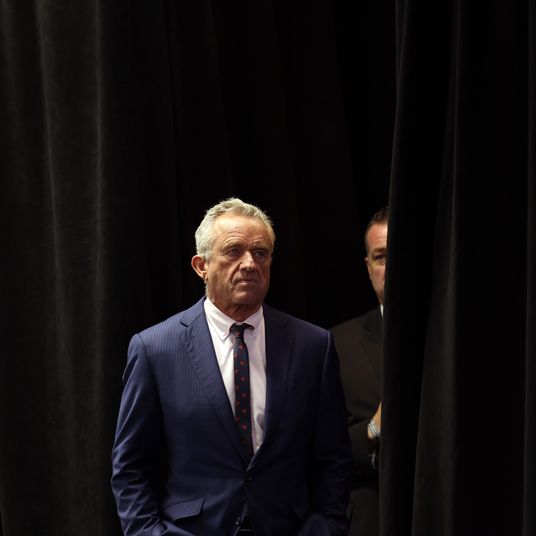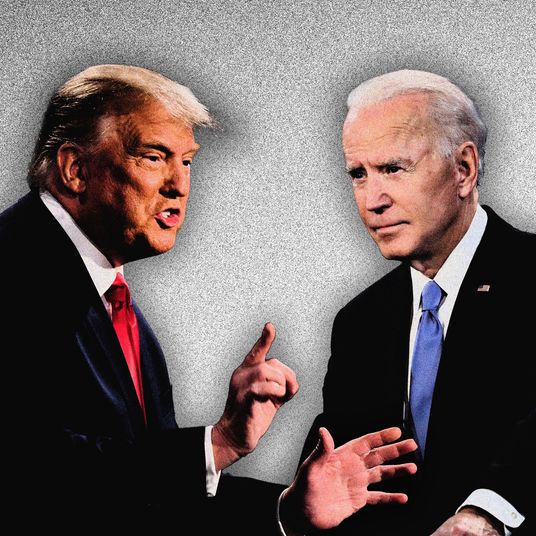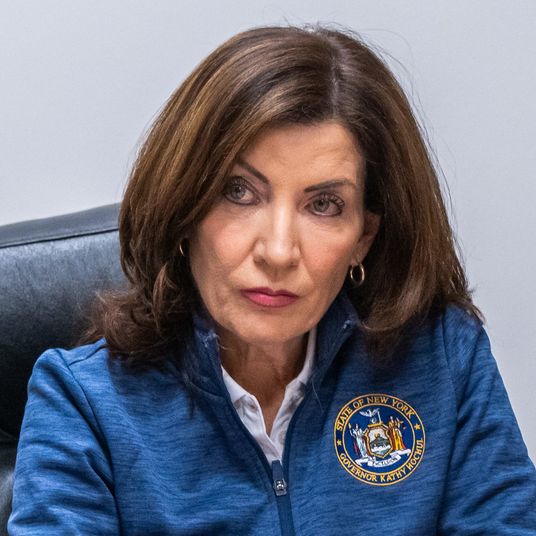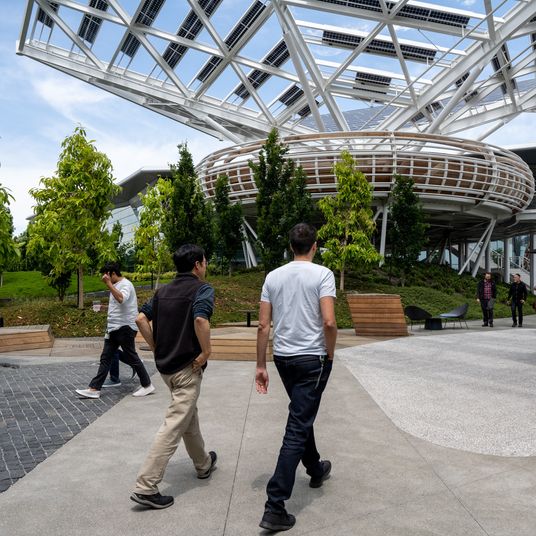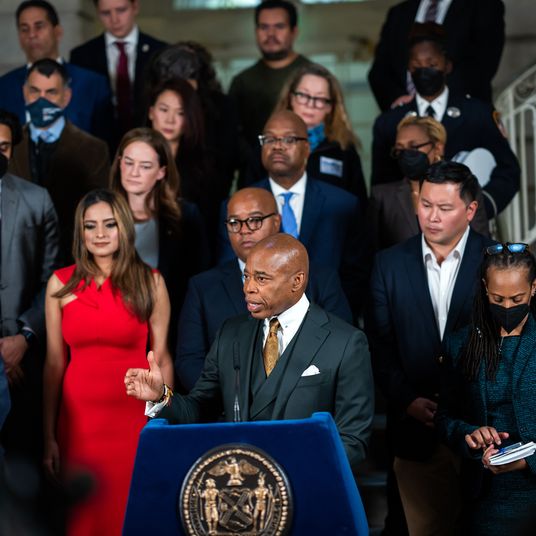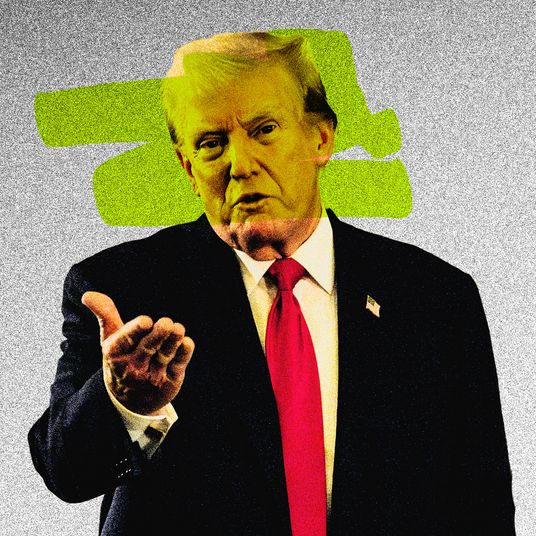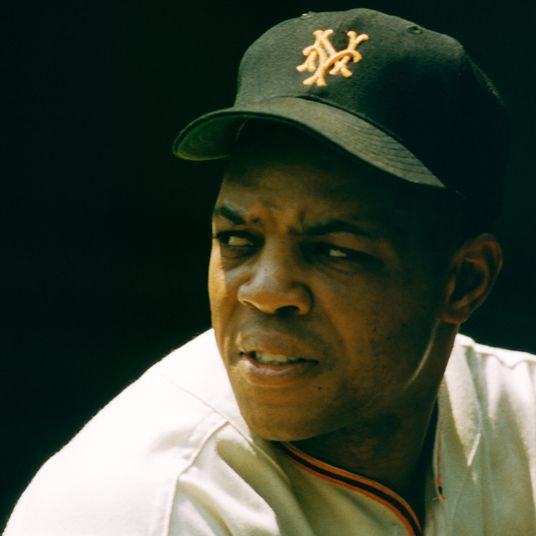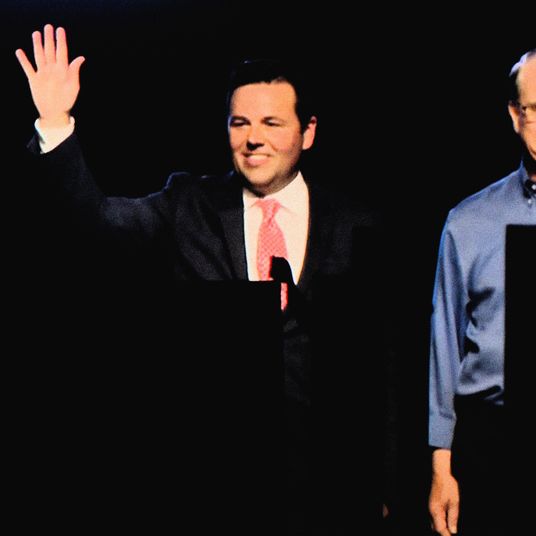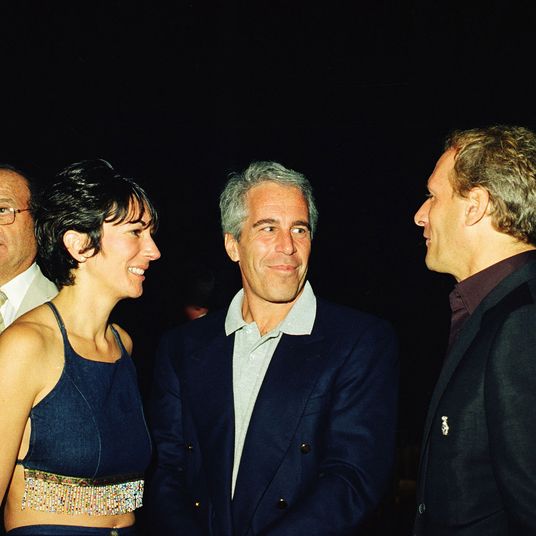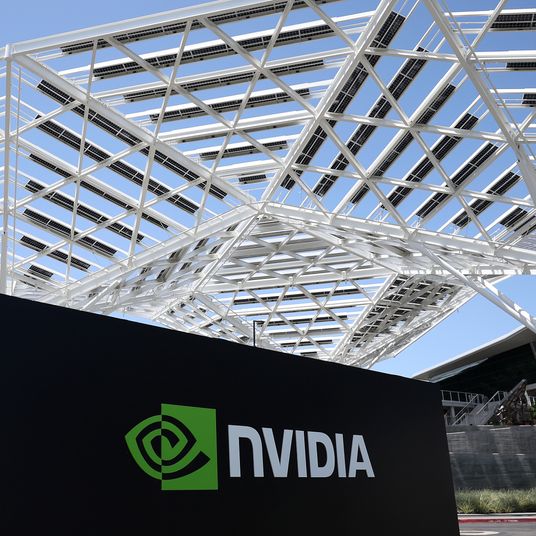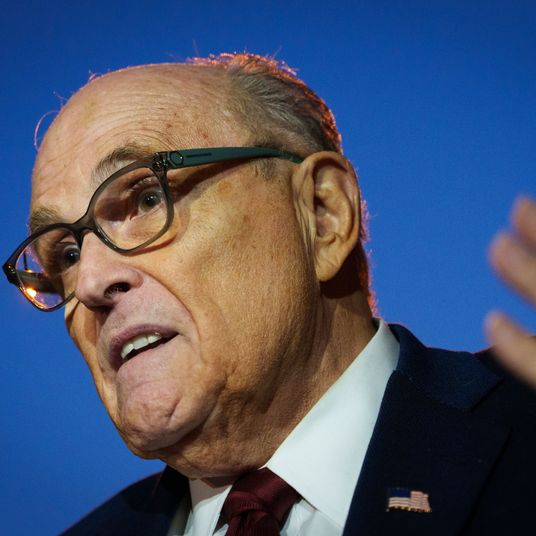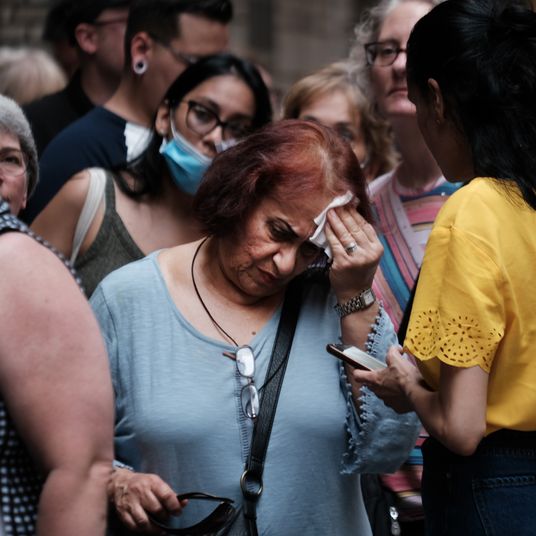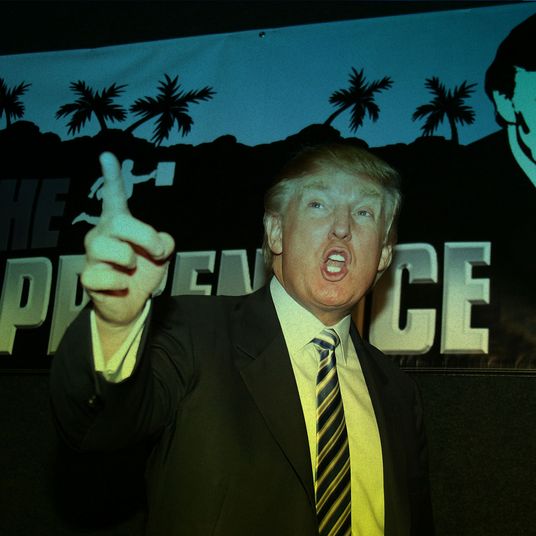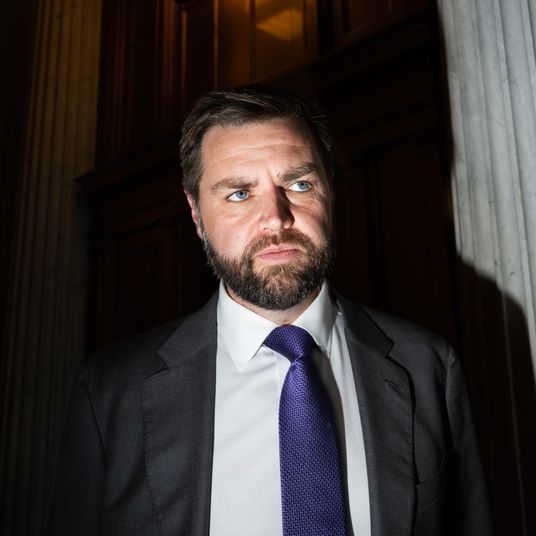One of the most underappreciated developments of Donald Trump’s presidency is that his strategy toward China was a total failure on its own terms. While Trump began his presidency as a snarling trade warrior, bent on ending Chinese manufacturing dominance, he ended his presidency as a whimpering apologist for Beijing.
The culmination of Trump’s standoff with China was a trade deal that supposedly committed China to purchasing $200 billion worth of American goods. Robert O’Brien, a former Trump national security adviser, admits that the Chinese never actually carried out their end of the deal. “I don’t think we’re going to see a deal like we saw in the first term,” he told Semafor’s Morgan Chalfant. “I think people were generally happy with phase one, but as it turned out, the Chinese didn’t honor it.”
At the time, Trump was trying to pump up the trade deal with China as the crowning achievement of his first term. His snarling rhetoric toward Beijing was supposed to be the setup to the deal, which he could then tout as ushering in a new period of friendship and prosperity. “One of the many great things about our just signed giant Trade Deal with China is that it will bring both the USA & China closer together in so many other ways,” he tweeted. “Terrific working with President Xi, a man who truly loves his country. Much more to come!”
The deal took shape just as COVID-19 was spreading in China, which is why Trump spent the first weeks of the pandemic insisting the virus was well under control on account of the Chinese Communist Party’s flawless and oh-so-forthright direction. (“China has been working very hard to contain the Coronavirus. The United States greatly appreciates their efforts and transparency. It will all work out well.”)
So O’Brien’s confession that the deal didn’t actually pay off is a pretty damning one. Of course, there are plenty of former Trump advisers who now admit Trump was an ignorant, lying criminal, but O’Brien is not some repentant former lackey. He is very much an ongoing lackey continuing to jostle for influence in a possible second term.
At least some prospective Trump advisers seem to have broadly sensible ideas on how to design a China trade policy that actually works. “Some believe Trump may also try to bring together an international coalition to limit China’s budding dominance in electric vehicle exports, with an eye to boxing in electric-vehicle giant BYD,” reports Chalfant. O’Brien envisions a partnership with allies to isolate China’s strategy of dominating the automobile-export market:
O’Brien said that this time around Trump would likely work with allies in Europe and Asia to put more pressure on Chinese companies like BYD.
BYD “is trying to put every carmaker in the world out of business by dumping CCP subsidized cars everywhere,” he said, referring to the Chinese Communist Party. “The Japanese, Koreans and Germans are starting to see the danger. If China destroys the German auto industry, which could happen very quickly, Germany is in real trouble. So I think we’re going to have some common ground with our allies on dealing with Chinese EVs and battery technology going forward.”
Encircling China with an economic alliance sounds smart. But the notion that Trump would follow this strategy seems highly optimistic. For one thing, the actual policy he claims to want to follow is a universal tariff, currently targeted at 10 percent, but possibly high enough to replace the income tax (an impossible goal, but whatever).
A universal tariff is the opposite of a partnership with allies. It would mean integrating the American automobile market with partners in Europe and Asia by lowering, rather than raising, our tariffs with those countries.
A second and more profound problem with getting Trump to follow this strategy is that it cuts against all his instincts. Trump has been attacking American allies as parasites since 1987. As president, he relentlessly trolled American allies as supposed freeloaders. He specifically resents Germany for being able to manufacture cars. “See the millions of cars they are selling in the U.S. Terrible. We will stop this,” Trump reportedly said at one disastrous NATO meeting.
For nearly as long, Trump has also been drooling over the world’s autocracies. Russia, famously, is the apple of his eye, but he has room in his heart for more than one dictator. Trump praised the Tiananmen Square massacre in 1990. (“Then they were vicious, they were horrible, but they put it down with strength. That shows you the power of strength. Our country is right now perceived as weak.”) After becoming president, he continued to fawn over China’s very strong leadership, congratulating Xi Jinping for making himself president for life and touting his brilliance and toughness.
The known methods for foreign countries to woo Trump involve a combination of payoffs and flattery. Authoritarian states have natural advantages at this game. They have weak or nonexistent laws against corruption, and their leaders can engage in nauseating displays of friendship with a hated figure like Trump without fear of alienating domestic constituencies.
The notion that Trump is going to stop trolling American allies, craft an economic partnership with them with greater free trade, and confront the world’s most powerful authoritarian state sounds like a great plan. All they need to do is get Trump to believe the literal opposite of all his most deeply held convictions.





